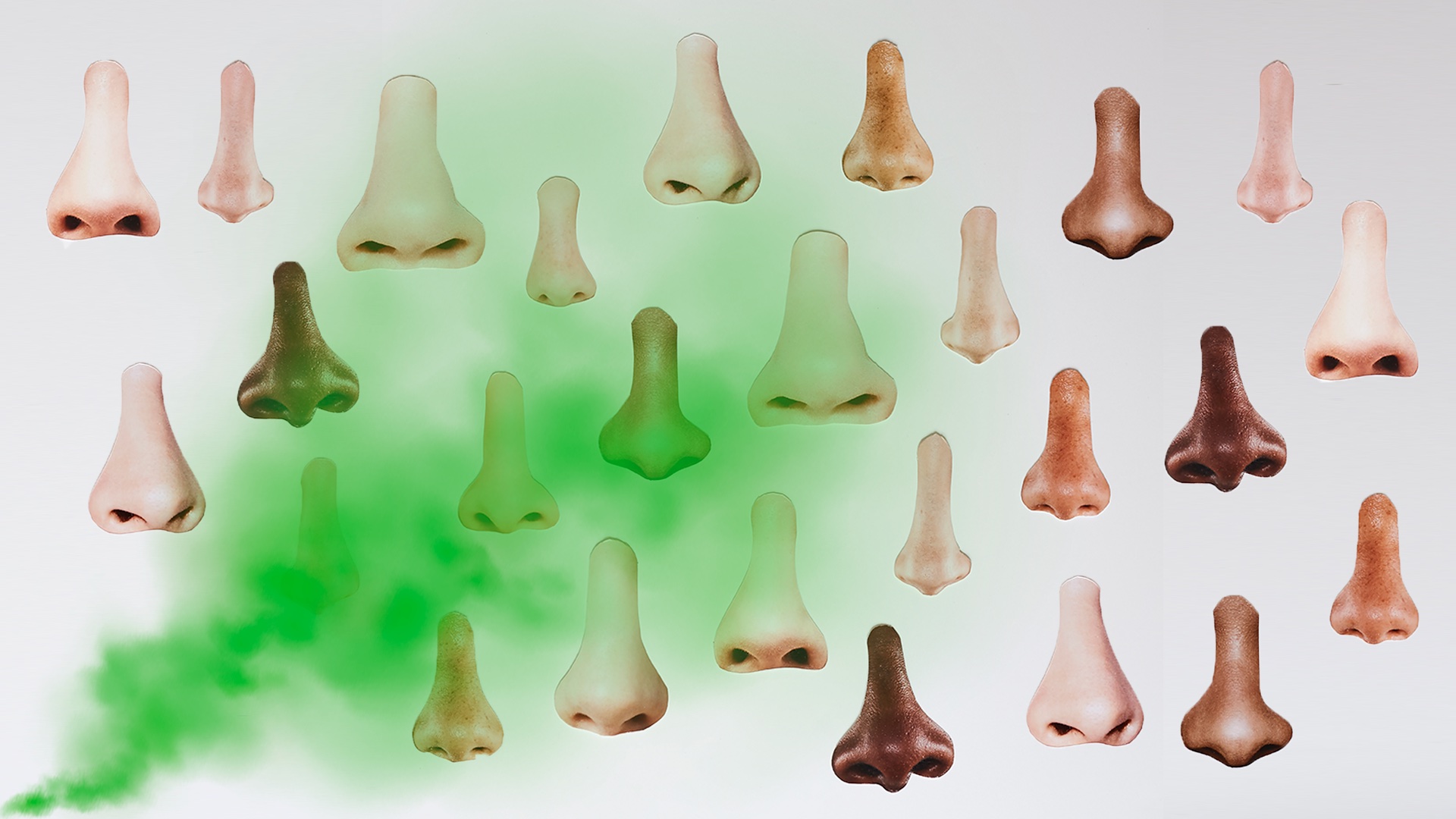
Can bad smells harm you?
www.popsci.com
Our dog, Eddy Sandwich, who, depending on the angle, can resemble a bat, lemur, or Dobby from Harry Potter, took a dump on the floor.My fiance, who was eating a bowl of noodles a couple of feet away, put her fork down. Her meal was ruined. She asked if poop particles had traveled across the room and landed on her soup. I said they wouldnt make her sick.That was not the question, she reiterated. She wanted to know: Was there poop in her soup?After much research, I must conclude that, yes, molecules from the poop could have been present in her soup. Eating the noodles or smelling said dookie, however, was safe. Get the Popular Science newsletter Breakthroughs, discoveries, and DIY tips sent every weekday. By signing up you agree to our Terms of Service and Privacy Policy.The belief that smell, in and of itself, can cause sicknessknown as miasma theorylingered from Ancient Greece until the late 1800s. All smell is, if it be intense, immediate acute disease, said public health reformer Edwin Chadwick to a British parliamentary committee in 1846, after London had suffered through multiple cholera epidemics. As the 19th Century wound down, the more accurate germ theory, which blamed microorganisms for disease, became ascendant.While it doesnt make people sick on its own, the foul odor from feces is a powerful and potent warning sign, said Danielle Reed, chief science officer of the Monell Chemical Senses Center. Theres a reason, biologically and evolutionarily, that poop is so unpleasant, right? Because its not good for us and it carries all sorts of nasty things potentially.You get sick by touching feces and ingesting E. coli, not by smelling it. But sniffing some substances can harm you. Take enough whiffs of mustard gas or hydrogen cyanide and you might die. Viruses and bacteria can travel through the air, too, causing you to catch COVID-19, tuberculosis, and other dangerous diseases. In those cases, its not a smell that harms youits inhaling contaminated liquid particles expelled when people do things such as laugh and cough.For the most part, nasty smells are CAUTION signs, not the cause of harm. Thats because odorant molecules are tiny, consisting of a few atomstoo small for germs to hitch a ride. When an object sheds those molecules, some of them make their way into your nose, where there are typically six to 10 million odorant receptor cells, said Richard Doty, director of the Smell and Taste Center at the University of Pennsylvania. Among those, there are about 400 different types of cells, each one of which expresses a unique protein. An odorant molecule stimulates multiple olfactory receptors. Like notes make a chord, the combination of cells that are stimulated determine a smell. Our brain interprets some of those combos as pleasant and some as foul.Not all of those molecules venture into your nose, however. Some land on your skin, which, like your nasal cavity, is equipped with odorant receptors. (They should really be called chemical detectors, Reed said, as theyre not associated with smell when located outside of the nose.) And they land on other surfaces, such as clothes, carpet, and food.As for how long those odorant molecules stick around, it depends on the surface area of the object. Certain materials will just hold on to things more than others, said Doty, who is also the founder of Sensonics, which creates tests for smell. A rug, for example, retains odor for longer than a slick piece of cellophane because it has more nooks and crannies for the molecules to get stuck in. With certain types of odorant molecules, and with enough exposure, there are musks that can linger for years.When it comes to stinky carpets and dog doo, it might be nice to mute your sense of smell. But be careful what you wish for. In 2021, nearly 60 percent of people infected with COVID-19 experienced some loss of smell, according to a study from a Harvard teaching hospital. To Reed, thats just one reason why researchers like her need more resources.The pooper himself: Eddy Sandwich. Image: Keith Wagstaff/Popular Science We know 10 times more about vision than we know about smell, said Reed, yet we get about 10 percent of the funding to study it as vision and hearing. And it could be the key to understanding some pressing medical issues.Loss of smell is an early sign of neurodegenerative disorders like Parkinsons and Alzheimers, and thats touched my family very closely, said Reed. I had my husband lose his sense of smell when he was a young-ish man, and I didnt understand. That [turned out to be] a harbinger for a very, very tough diagnosis.Doty agreed that more resources should be spent studying smell. I think the major misconception is that its not a very important sensory system, he said. It warns us when were near dangerous substances, such as rotten food and feces, as well as leaking gas and smoke from fires. And it brings us simple joys. If you like food or the pleasure of eating yeah, its very important.In the grand scheme of things, the ability to enjoy a bowl of delicious noodles is worth suffering through an errant dog poop. Those nasty smells protect youand youd probably miss them if they were gone.This story is part of Popular SciencesAsk Us Anything series, where we answer your most outlandish, mind-burning questions, from the ordinary to the off-the-wall. Have something youve always wanted to know?Ask us.
0 Comentários
·0 Compartilhamentos
·39 Visualizações


